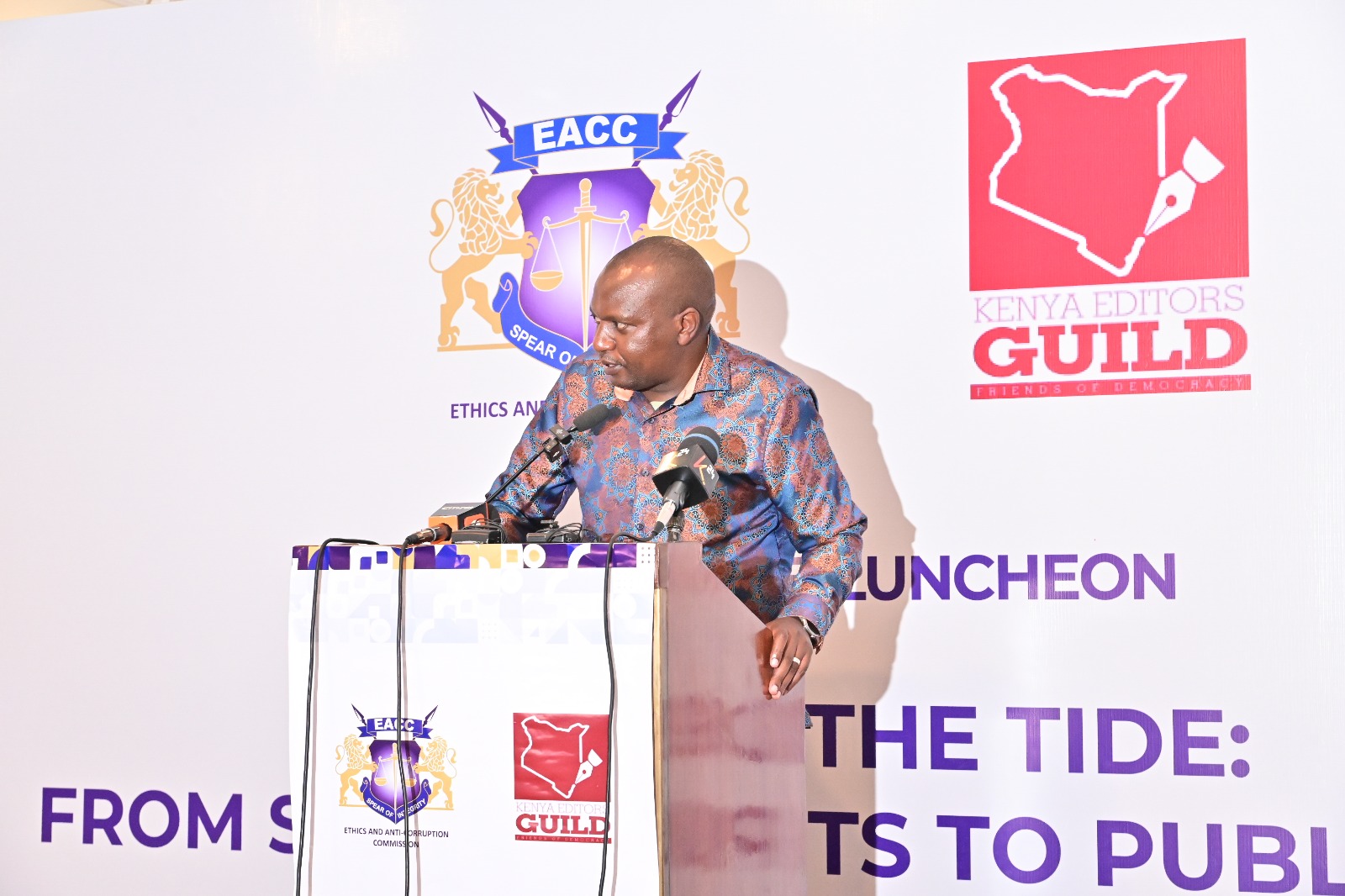
The Media Council of Kenya (MCK) has renewed its pledge to deepen ties between the media and anti-corruption bodies, aiming to boost transparency and integrity in Kenya’s governance.
MCK CEO David Omwoyo stated that the media plays a critical role in combating corruption through investigative journalism and raising public awareness.
“Today’s gathering brings together individuals who are at the forefront of shaping Kenya’s future—editors who influence public opinion, CEOs who drive institutional integrity, and anti-corruption leaders who work tirelessly to protect public resources. The role of the media in this collaborative effort cannot be overstated, and it is through such partnerships that we will ensure corruption is exposed and public trust is restored”, Mr Omwoyo said during the EACC-Kenya Editors’ Guild (KEG) consultative forum in Nairobi.
He further acknowledged the vital responsibility shared by both the media and anti-corruption bodies in tackling the deep-rooted issue of corruption.
“The media serves as a crucial link between the public and those in power, ensuring accountability is maintained. For this to be effective, it requires a united effort from all stakeholders, including law enforcement, policymakers, and the media itself. By fostering such collaborations, we can help uncover corruption, safeguard the public interest and ensure our governance systems operate with integrity.”
He highlighted the growing challenge of misinformation and disinformation, warning that it poses a significant threat to media credibility.
“The rise of cloned headlines and fake news presenters reading fabricated stories only undermines trust in the media. We must allocate more resources to fact-checking and ensure that accurate, ethical reporting remains at the heart of our media practices”, he said.
Mr Omwoyo stressed the urgent need for a media sustainability fund to bolster the anti-corruption fight, noting that the media’s ability to expose corruption and enforce accountability hinges on financial muscle.
"Investigative journalism is key, but cash shortages hold it back. We must explore bold funding ideas to fuel accountability reporting without compromising media freedom”, he said.
Kenya Editors Guild President Zubeida Koome stressed the need for collective action in the fight against corruption.
“The media must remain resolute in upholding ethical reporting and holding powerful institutions to account”, she said.
EACC CEO Abdi Mohamud reiterated that the battle against corruption cannot be won by anti-graft agencies alone and urged the media to champion transparency.
“The media plays an essential role in exposing corruption, and it is through your collective efforts that stolen assets can be recovered and returned to the public for the common good”, he said.
EACC Chairperson Dr David Oginde emphasised the importance of asset recovery as a tool in the fight against corruption, explaining that removing the financial incentives for corrupt activities is key to dismantling these crimes.
“It is crucial that journalists not only report on corruption but also follow up on the recovery of stolen assets, ensuring they are safeguarded from further misappropriation”, he asserted.
The forum explored the idea of establishing a media sustainability fund, potentially financed by a portion of recovered corruption proceeds, to support investigative journalism.
Discussions included the challenges faced by investigative reporters, such as legal threats, limited access to data, and the need for stronger protections for journalists covering corruption cases.
The importance of a structured partnership between the media and anti-corruption agencies was underscored to strengthen accountability and reinforce the media’s vital role as a watchdog in society.